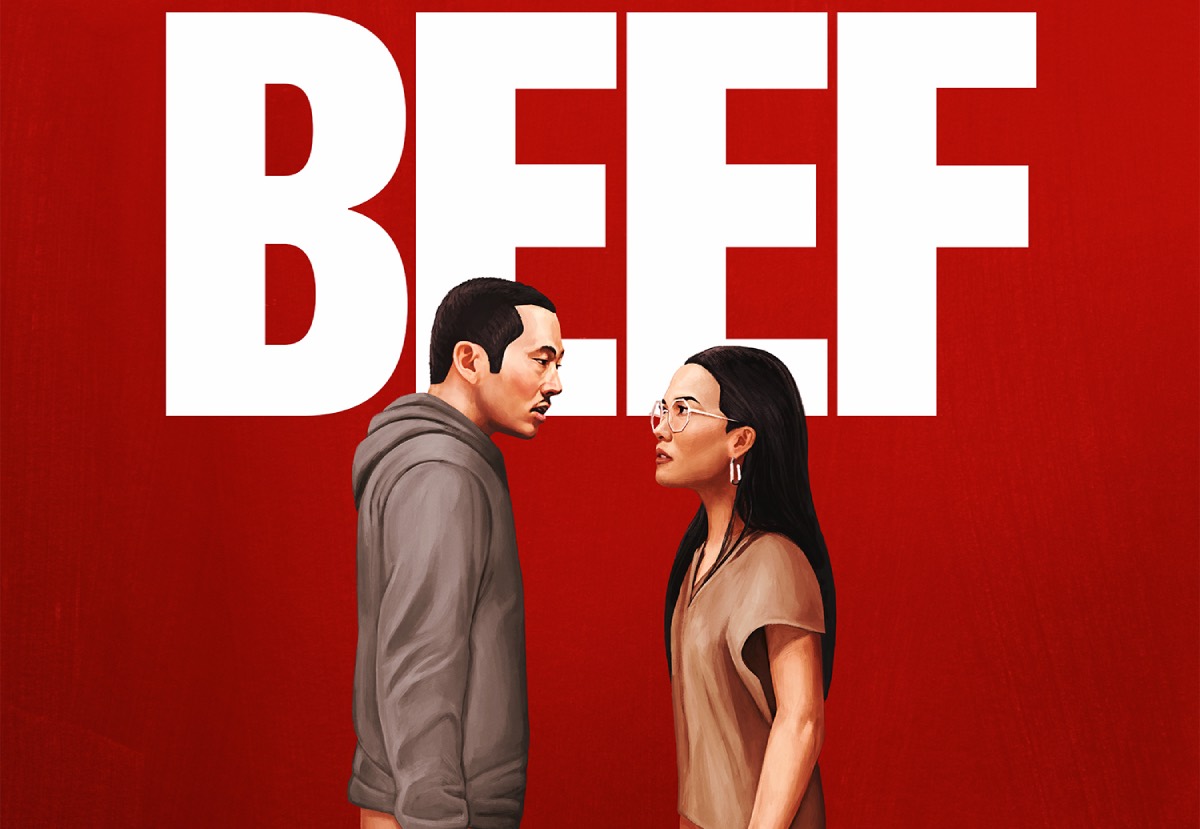I Can’t Say Enough Good Things About A24 and Netflix’s First Collaboration
5/5 Best Bulgogi in SoCal.

Most people don’t realize they have an anger problem. Or, at the very least, they don’t understand what kind of anger problem they have. Some folks suppress that anger all the way down inside, thinking of it less as a normal human reaction to pain, and more of a toxicity that must be stamped out. Others lean too hard into it, so enmeshed with their woes that they cannot see beyond them.
In Netflix and A24’s Beef, the main protagonists, Amy (Ali Wong) and Daniel (Steven Yeun), occupy both ends of this spectrum. Amy is a successful business owner who’s at the end of her rope, and tired of feeling like she can’t express herself without everything falling apart. Daniel is a contractor who’s been down on his luck for the last several years, with little to no immediate support. You can tell that he’s weary, and he’s tired of being pushed around—so when a white luxury SUV pulls some BS with him in a parking lot, he decides to follow it and let the driver know just how angry he is. Unfortunately for him, the driver is Amy, whose brand of rage is the suppressed kind, which she describes later in the series as being similar to her Chinese father’s rage: that which bubbles up and out, all at once. After taking him on a wild goose chase that results in him cowering behind the wheel, she wins the battle. But the war has only begun.
The majority of the show is, on its surface, a game of cat and mouse between the two. But anyone expecting this to be a light, silly romp through absurdity is going to be disappointed. It’s a lot darker, a lot more intense, and, ultimately, such a brilliantly subversive and intelligent show, it might already be my pick for favorite show of 2023. Road rage, who knew!
There is so much to talk about this show. I plan to go more in-depth on various points in other articles, but for the sake of this review’s cohesion, I’ll try to be as brief and concise as possible. Ultimately, every episode manages to expertly weave themes surrounding classism, sexism, new-age petulance and “toxic positivity,” and all kinds of notions regarding race in the western world (especially in a Los Angeles context). And each episode is able to do so without these themes seeming heavy-handed, emotionally exhausting with no payoff, or, god forbid, boring.
The tension is there, believe me, but it’s offset by the many moments we get where the characters are forced to look both inwards, and at how their actions are affecting others. Unlike other pieces of media that hinge around revenge, Beef is aware of the foibles of succumbing to one’s rage, while also eliciting a sense of empathy and understanding for why its characters are the way they are. It’s hard to fully hate Daniel or Amy because they are just so utterly miserable, in ways that aren’t hard to understand, and we’re consistently shown why from the get-go.
On Daniel’s end, he simply cannot find stable work, and both his parents and his brother refuse to offer any proper support as he tries to keep everything together on his own. The classist invisibility he faces on a day-to-day basis has him questioning whether or not he should even stay alive, and ultimately, it’s his own sense of spite and rage that end up keeping him going.
Then, the first scene we have with Amy is one where her husband completely disregards her feelings. (He cuts her off by saying, “Baby, before you spiral—” OOH I wanted to slap that man!) The following scenes tell a story of a woman who is doing everything for everyone, all the time, and is not being allowed to even slightly express how she feels. She’s less of a person and more of an automaton in the eyes of most everyone around her.
The two, in many ways, have much in common, and the show often references this in moments where you think they might change and just let this feud be put to rest. But always, always, some other intersecting facet interferes, and the war starts up again. Daniel is pretty sexist, and he’s not afraid to call Amy and other women he meets bitches; he’s also seldom seen talking to a woman in a way that feels equal (he assumed that Amy’s husband was the road rager, initially). Amy is pretty elitist, and the ways in which she’ll mock others often have to do with money and status (she paints the worlds “I AM POOR” on the side of his truck). Their similarities could ground them, but they’re so burnt up over their differences, they let their years of unfulfilled vindication run wild. Eventually, things escalate to a point that is nigh on irredeemable—yet still, they are forced to persevere, and decide whether to finally bury the hatchet, or continue down this path of destruction.
While Beef might be a little intense for a one-night binge, it’s the sort of show that you’d truly be missing out on if you didn’t watch it. There is so much to this show that it will take at least several more articles to properly encapsulate my thoughts. But until then, do yourself a favor and watch it. And when you’re done, if you live near the San Fernando Valley, go eat at Grandma Kim’s, where I’m fairly certain they filmed one of the dining scenes. Order a beef bulgogi and an apple smoothie, you’ll thank me later.
(featured image: Netflix/A24)
Have a tip we should know? tips@themarysue.com